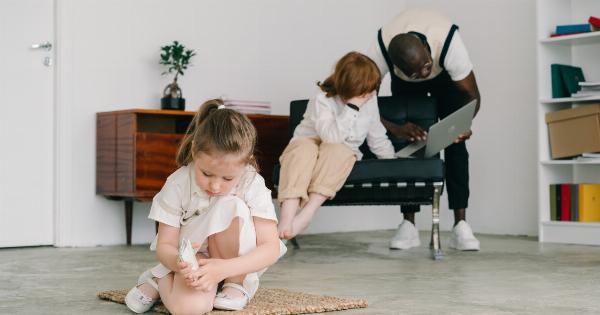There are countless benefits to allowing mothers and infants to room in together after birth. Rooming in provides numerous advantages for both mother and baby and can promote a healthy postpartum period.
Here are some of the most significant benefits of mother-infant rooming in:.
1. Promotes Bonding and Attachment
One of the primary benefits of mother-infant rooming in is that it promotes bonding and attachment. When a mother and her baby spend more time together, they begin to develop a stronger and deeper connection.
This is particularly important in the early days and weeks after birth, as bonding and attachment can set the stage for a healthy and fulfilling relationship between mother and infant throughout their lives.
2. Supports Breastfeeding
Rooming in can also be incredibly beneficial for breastfeeding. Breastfeeding is easier and more successful when a mother and her baby are together, and the baby is able to nurse frequently.
Skin-to-skin contact and other forms of physical closeness can also help stimulate milk production, support a healthy milk supply, and encourage a baby to latch onto the breast. Additionally, mothers who are able to breastfeed more easily are less likely to experience postpartum depression and more likely to feel relaxed and confident after birth.
3. Encourages Better Sleep for Babies
When infants room in with their mothers, they tend to sleep more soundly and for longer stretches. This is because they are comforted by their mother’s presence and the familiarity of their surroundings.
Rooming in can be particularly beneficial for breastfed babies, as they often need to feed frequently throughout the night. When a baby is able to nurse on demand, they are more likely to fall asleep quickly and return to sleep more easily.
4. Improves Emotional Regulation
Research has suggested that rooming in can also improve emotional regulation in both mothers and infants.
When mothers are able to be close with their babies, they are more able to respond to their baby’s needs and provide comfort and reassurance as needed. This can help regulate the baby’s emotional state and make them feel more secure and cared for.
Over time, this increased emotional regulation can lead to better outcomes for both mother and infant, including reductions in anxiety, depression, and other common postpartum complications.
5. Helps Identify Issues Early On
Rooming in can help new parents identify any potential issues or concerns early on. When mothers and babies are together, parents are able to closely observe their baby’s behaviors and detect any signs of discomfort or illness more quickly.
This can be especially important for first-time parents, who may feel uncertain or unsure about the best way to care for their newborn. When parents are able to identify issues early on, they are more likely to seek appropriate medical care and support and can help prevent more serious health complications down the line.
6. Supports Family-Centered Care
Finally, mother-infant rooming-in is an important aspect of family-centered care.
By allowing families to stay together, mothers and fathers are able to better support each other during the postpartum period and share the responsibilities of caring for their new arrival. This can help fathers feel more involved in the early days and weeks after birth and can promote stronger bonds between fathers and their infants as well.
Conclusion
Overall, there are many benefits to mother-infant rooming-in.
From promoting bonding and attachment to supporting breastfeeding and enhancing emotional regulation, rooming-in can help set the stage for a happy, healthy postpartum period for both mother and infant. By prioritizing family-centered care and allowing families to stay together, healthcare providers can help support the best possible outcomes for new parents and their babies.































